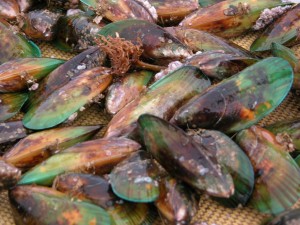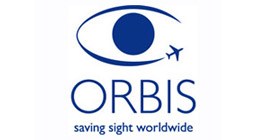Given our ageing population, osteoarthritis is the most common arthritic disorder affecting the greatest number of people in the UK with more than eight million people estimated to be affected.

Green Lippled Mussels – a treatment for arthritis?
A couple of weeks ago I received a press release which, I have to say, bowled me a googly, but which did deserve a bit more investigation. Simply put the press release (which I have pretty much reproduced verbatim below) suggested that green-lipped mussel extract (GLME) can be used as a treatment for arthritis.
They very kindly gave me the opportunity to interview John Croft, a New Zealand marine scientist and one of the world’s leading experts on the life cycle of the green lipped mussel who have written extensively on GLME as a treatment for arthritis.
You can read my interview below as well.
Now I have no idea how well GLME works so if you have used it to treat arthritis then it would be great if you shared your story in the comments section below.
Arthritic disorders are one of the most significant causes of debilitating mobility and pain problems. Thanks very much.
So first up the PR story.
The number of people who have arthritis is thought to have risen four fold over 50 years and by 2030, it is estimated that 67 million adults will have doctor diagnosed arthritis with 37% of those estimated to report arthritis related activity limitations.
20% of adults in the UK consult their GP each year with a musculoskeletal problem accounting for one in six consultations, 8.8 million physiotherapy consultations and over 3.5 million calls per year to emergency services. The demands on the NHS are already considerable with experts predicting an unsustainable weight in years to come.
There are now more people over 60 years of age than there are children under five. Ensuring a quality of life for an ageing population is key. Prevention or cure for joint degeneration is not possible however, in many cases the progression can be slowed down. Knowing what treatments are best to take to maintain a lifestyle is well debated especially with some pain relieving products causing stomach discomfort and other side effects for a number of people that take them.
One such alternative which has been extensively researched is green-lipped mussel extract (GLME) which is the basis for a new book by renowned marine scientist, John Croft. John’s review, ‘Arthritis and Aging, Solutions from the Sea’ explores more than 40 years of international research into the use of marine based compounds in human and animal health. The findings within John’s review have particular relevance for sufferers of chronic rheumatoid arthritis, osteoarthritis and age-related degenerative disease.
John’s published review has indicated that the specific nature of GLME – known as Seatone in the UK – may help inhibit age related joint degeneration and may help reduce inflammation, pain and joint immobility caused by arthritic disorders.
Osteoarthritis isn’t just an age-related condition however and can also affect people with physically demanding lifestyles.
Joining Croft for the interview was Dr Chris Steele from ITV’s This Morning.
PATIENT TALK: Dr Chris first, what exactly is arthritis and what are the symptoms?
Steele – Arthritis is basically in an inflammation of a joint, and most of us will know somebody with arthritis – normally osteoarthritis – which is the most common form of arthritis. Osteoarthritis is a condition of wear and tear and inflammation in the joint that comes on over time and is more common in people over 55.
PATIENT TALK – What is the difference between as osteoarthritis and rheumatoid arthritis, and other forms such as gout?
Steele – Well there are many different types of arthritis, and it does get complicated.
Rheumatoid arthritis is a different type of disease process altogether. It’s not the wear and tear of osteoarthritis but a condition known as an autoimmune disease where the body attacks its own tissue – and we are not sure why. It tends to affect the joints of the fingers , wrist and the toes. Interestingly it tends to affect both sides. It is symmetrical and women are more affected than men. It also comes on in a younger age group, so 20 – 50 years of age.
PATIENT TALK – Is fibromyalgia a form of arthritis?
Steele – Myalgia means pain in the muscles, and fibro refers to fibres: tissues, tendons, ligaments etc. So with fibromyalgia you have got the inflammation or tenderness of muscles, tendons and ligaments which can cause acute tender spots, specific spots all over the body. It can cause fatigue, sleep disturbance and is one of those conditions for which there is no test: they can’t test you and say, ‘yes, the test is positive – you’ve got fibromyalgia’. But a lot of people suffer the symptoms of fibromyalgia.
PATIENT TALK – And what are the typical treatments for arthritis at the moment?
Steele – Well, basically if you have “twinges in your hinges”, pain in your knees and joints, and are over 55 years old, you will just try and help yourself – take some painkillers or stronger anti- inflammatory tablets you can get over the counter.
If you are not getting much response then you should probably be going to see your G.P who can give you something stronger or maybe a different type of medication, maybe get some physiotherapy booked for you and then see how it goes. But alongside all of this, a lot of people will look for alternative or complementary therapy even before they get to the G.P by just trying to help themselves.
PATIENT TALK – John, tell us about your research into arthritis and the possible benefits of this substance called ‘Green Lipped Mussel Extract?’
Croft – This dates back to 1972 in New Zealand. It was there that we learned that the green lipped mussel had anti- inflammatory properties and so we began the research with the University of Auckland and the department of medicine there.
They were able to make a powder from the extract which actually did work and helped both human and animal subjects. It has been in clinical trials in several countries. My contribution has also been on the laboratory side, finding out precisely how it works , what it does to help alleviate the symptoms of arthritic disorder, and now also with age-related joint degeneration.
PATIENT TALK – Can you tell us a little bit more about how you think it works?
Croft – What we now know is that has range of anti-inflammatory properties, the main one is due to carbohydrate component in the muscles which inhibits the immune cells, the white cells, in the blood stream from escaping, being over-excited, out of balance and attacking our own tissues, attacking good cells instead of just antigens.
The green mussel extract also contains omega 3 fatty acids naturally, which inhibit the components that actually cause the degeneration of cartilage in the joint.
PATIENT TALK – How long do you have to take it for before it starts to work?
Croft – For most people it takes 4 – 6 weeks for it to start working, slowly and progressively. The maximum time would be 12 weeks. If it hasn’t worked for someone in 12 weeks-time, well then it’s probably not suitable for that person.
PATIENT TALK – And have you taken this yourself?
Croft – I have taken it for the last 16 years because of my age, I’ve never had arthritis but I’ve now got age-related joint degeneration simply by growing old and I’m fully fit, I’m fully mobile and pain free, I’m grateful to say.
PATIENT TALK – What are the cost implications? Is this potentially an expensive treatment, or is it something that could be made available on the NHS?
Croft: I have no idea what it costs in the UK. I know what it costs in New Zealand, and it doesn’t seem expensive to me. I do know that you cannot get it on prescription. It is not a prescription item, but doctors can actually ask people or suggest that people try it.
PATIENT TALK – Would it also help with fibromyalgia and rheumatoid arthritis?
Croft: For rheumatoid arthritis, the anti-inflammatory compound in it can help there with chronic rheumatoid, not acute. With fibromyalgia, I can’t really comment as we have never looked at that disorder.
PATIENT TALK – Thank you both very much.


